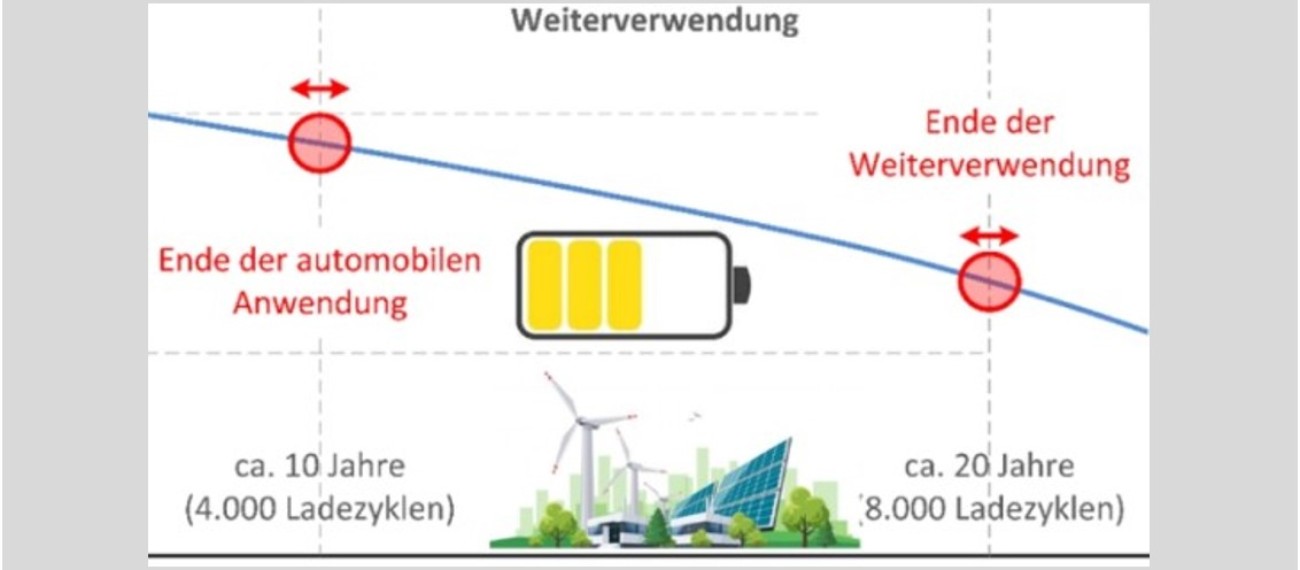Project funding: HA Hessen Agentur GmbH, Innovationsförderung Hessen- Förderung der Elektromobilität (2020 – 2022)
Therefore, Re2LiB focuses on the following:
- Determination of the end of use or the start of recycling and development of technical and economic advantages for various second-life (SL) applications.
- Development of economically profitable recycling strategies, which will serve to separate and clean the different battery materials. The components obtained in this way are to be reused in new batteries.
The results of the proposed investigations will help to improve the overall efficiency of the supply chain and to ensure that Germany (Hessen) has necessary tools for the safe, economical and environmentally compatible recycling of the rare elements contained in lithium-ion batteries.
This corresponds to the concept of the circular economy pursued by Germany and the EU, namely, the recovery of valuable materials from waste streams to secure the supply of raw materials and reduce the impact on nature.








